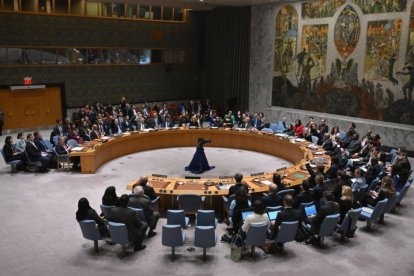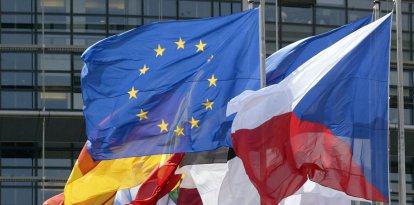U.S. veto prevents Palestine from joining the UN as a Member State
Washington explained that a Palestinian state should only emerge as a result of direct negotiations with Israel.

(Angela Weiss / AFP)
The United States used its veto power in the United Nations Security Council to block the resolution for the recognition of a Palestinian State by the international body.
This Thursday's vote tallied 12 votes in favor, two abstentions by the United Kingdom and Switzerland, and only one vote against by the United States.
U.S. officials had hoped to avoid using their veto if other states opposed the resolution recommending the admission of the State of Palestine as a member of the United Nations. However, failing to achieve the necessary backing, the United States decided to exercise its veto in support of Israel.
Washington explained that its position is that the emergence of a Palestinian state must be the result of direct negotiations between Israel and the Palestinian Authority with the support of the United States and other partners.
"We completely believe in the two-state solution and a state for the Palestinian people. We believe the best and the most sustainable way to do that is through direct negotiations between the parties," said White House national security spokesman John Kirby.
Currently, the Palestinians only have non-member observer status at the U.N., granted in 2012 by the General Assembly. To become a full member with voting rights, it must be approved by the Security Council and two-thirds of the General Assembly.
Israeli Foreign Minister Israel Katz called the proposal to recognize a Palestinian State just months after "the largest massacre of Jews since the Holocaust" "shameful" and praised the U.S. position in the U.N. Security Council.
"The proposal to recognize a Palestinian State (...) was a reward for terrorism. Terrorism will not be rewarded. Israel will continue to fight until Hamas is destroyed and all 133 hostages in Gaza are released," he added.
Meanwhile, the Palestinian presidency condemned the U.S. veto and called it "unfair, unethical and unjustified."
RECOMMENDATION





















